This past month Psychogeographic Review has been reading:
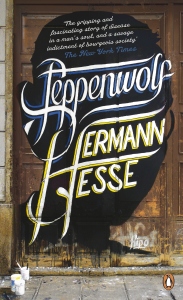 Hermann Hesse – ‘Steppenwolf’ (1927)
Hermann Hesse – ‘Steppenwolf’ (1927)
On the surface Harry Haller is a respectable, educated and well-dressed pillar of the community. But within lurks an alienated savagery: the lone wolf of the Steppes. Through a series of hallucinatory journeys, which embrace eastern religion and western philosophy, he begins to come to terms with his inner nature and catches sight of the possibility of redemption. I first read this book as a teenager in the 1970s when it was a totem of the counter-culture. I feared disappointment when I read it again recently, but I needn’t have worried, it is still a profound and powerful work. But there is also a dry wit I never managed to appreciate the first time round.
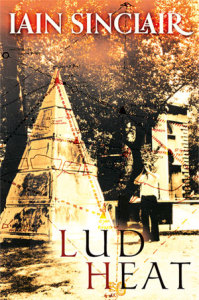 Iain Sinclair – ‘Lud Heat: ‘A Book of the Dead Hamlets’ (1975)
Iain Sinclair – ‘Lud Heat: ‘A Book of the Dead Hamlets’ (1975)
‘Lud Heat’ is a short but extraordinarily influential work. It is the book which first gate-crashed psychogeography into its present place as a vibrant sub-genre of English literature. In verse and prose Sinclair explores the psychic connections between six of Hawksmoor’s London churches. Beneath the surface of the city pulse shamanic incantations, given voice by the likes of Blake and Pound. At the heart of it all lies King Lud, the mythic founder of London.
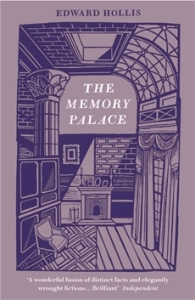 Edward Hollis – ‘The Memory Palace: A Book of Lost Interiors’ (2014)
Edward Hollis – ‘The Memory Palace: A Book of Lost Interiors’ (2014)
In this, Edward Hollis’s follow-up to his Secret Lives of Buildings, he makes an imaginative reconstruction of five famous rooms and one very personal one. From a collection of remembrances and fragments he recreates Rome’s Palatine, the old Palace of Westminster, the Petit Trianon at Versailles, the sets of the MGM studios in Hollywood and the pavilions of the Crystal Palace. From deep within himself he also conjures up his own grandmother’s sitting room. This book will make you look afresh at the rooms you presently inhabit, and those that live on in the recesses of your memory.
Meanwhile, we were listening to:
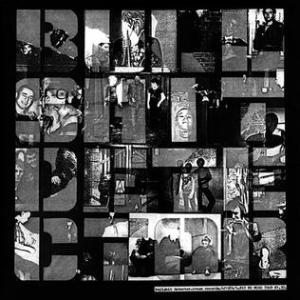 Various – ‘Bullshit Detector: Vol 1’ (1980)
Various – ‘Bullshit Detector: Vol 1’ (1980)
I played this record to death in 1980 and was pleased to discover it again recently. The people from Crass gathered together a clutch of tracks from a collection of post-punk DIY bands from the less-fashionable parts of the UK. This is the first of several Bullshit Detector collections they issued in the early 1980s. The quality of the songs varies, the recordings are without exception pretty rough, but the whole thing crackles with energy. There are some gems, like Amebix’s ‘University Challenged’ and its spoken intro in a heavy Devonian accent: ‘We are not fascists/We are not nihilists/We are anarchists’. Quite.
 Various – ‘Menai Bridge: Music from Gwynedd 1980-1985’ (2014)
Various – ‘Menai Bridge: Music from Gwynedd 1980-1985’ (2014)
Talking about post-punk collections, this latest issue by Travin is a delight. I thought I knew all about the North Wales scene of this period, but most of this material is new to me. Shamefully forgotten bands like Fay Ray and Brenda and the Hot Dicks have all the energy of punk, but with a palpable musical sophistication. The limited run of C35 cassettes has sold out, but Menai Bridge, in all its glory, is available for download at Travin Systems Records.
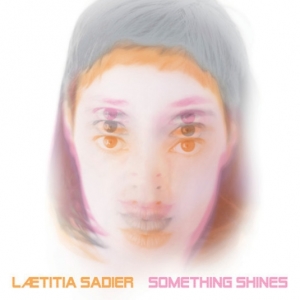 Laetitia Sadier – ‘Something Shines’ (2014)
Laetitia Sadier – ‘Something Shines’ (2014)
This, the third solo album from the former Stereolab singer, is a satisfying concoction of French pop, psychedelic rock and electronica. It’s hard to pick a stand-out track from the ten excellent cuts, but perhaps the epic Butter Side Up shades it. In some ways this is one of the year’s best albums, the only slight disappointment being that it is so similar in feel to her 2012 release, Silencio.
And watching:
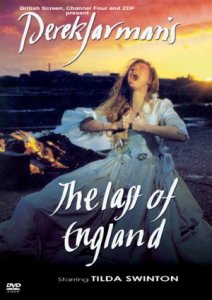 ‘The Last of England’ – Derek Jarman (1987)
‘The Last of England’ – Derek Jarman (1987)
Derek Jarman’s films begin to make sense when you think of them as visual poetry, rather than as stories with a conventional narrative arc. The Last of England offers up a series of dramatised vignettes interspersed with snippets of old Super-8 film and found footage. This is Thatcher’s England in the 1980s; a nation riven by the destruction of its industry and the defeat of its trade unions. England is dying, her life-force finally sucked dry by the City of London. While her TV screens glory in the spectacle of war in the South Atlantic and endless Jubilee pageantry, the nation’s streets are dark, grimy and windswept, her people stumbling on without hope.
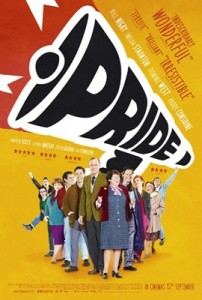 ‘Pride’ – Matthew Warchus (2014)
‘Pride’ – Matthew Warchus (2014)
The plot oversimplifies complex real-life events and the characterisations are lazily shallow. But, for once, that doesn’t matter; this is a glorious feel-good, dance-to-the-beat movie that celebrates diversity and wears its political colours with… pride. It’s also got some pretty good 1980s music too. A group of young lesbian and gay activists from London see echoes of their own struggle in that of the miners when the latter take on the full power of the state in 1984. They decide to raise money to support a mining community in South Wales. The film charts how, from initial mutual suspicion, a real understanding, respect and affection grows between the two communities.

Lud Heat has to be rad with Suicide Bridge. Who did that edition? My very old one looks like this: http://www.shearsman.com/ws-public/uploads/223_Iain%20Sinclair%204.png
Or ‘read’, if you prefer. 🙂
Yes, I once had an edition with the two together. Can’t remember if it was Albion Village Press though. The edition I now have is from Skylight Press, who also publish Suicide Bridge, but as a separate volume, arguing that it ‘deserves to stand on its own’. I can see both sides! Grateful thanks, as ever, for taking the trouble to comment.
Thank you for sending me searching the bookshelves for another old favourite (or two). I wrote a piece about them here:
http://www.theguardian.com/books/booksblog/2009/apr/07/iain-sinclair-london-poetry
I think you’d like the Magic Door
http://www.theguardian.com/books/booksblog/2008/feb/13/thehiddenbeautyofthemagic
I think so too – so difficult to get hold of though
There must be a library somewhere, or you could try the woman who runs the Strange Attractors website.
I’ve added it to my (long) list and will keep searching.